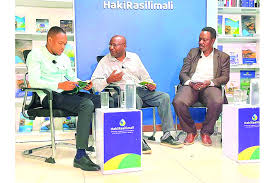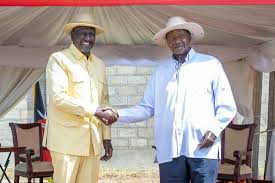A recent public dialogue in Dar es Salaam has revealed growing concerns about justice and human rights violations in Tanzania’s mining sector, particularly affecting local communities living near major mining sites.
The discussion, held under the theme “Hoja Yako Mezani” at the HakiRasilimali headquarters, brought together community representatives, human rights activists, civil society leaders, and government officials to explore how citizens can benefit fairly from the country’s vast mineral wealth.
During the event, Mr. Mohamed Nguku, a community representative from Geita, spoke about the struggles of residents who have lost their land to mining companies without fair compensation or relocation support.
“Our people have been moved from their ancestral land, but many have not received what they were promised,” Mr. Nguku said. “When we try to seek justice, the process is slow, expensive, and intimidating.”
Participants noted that many mining-affected communities face limited access to justice, poor legal representation, and a lack of clear communication between mining companies and local authorities.
Mr. Damas Monas, representing the Commission for Human Rights and Good Governance (CHRAGG), acknowledged the persistent complaints coming from mining zones and emphasized the need for stronger systems to protect the rights of citizens.
“The Commission continues to receive cases of forced evictions, unpaid compensation, and environmental damage,” Mr. Monas said. “We are urging both the government and investors to ensure that communities are treated fairly and that justice is accessible to all.”
He added that CHRAGG plans to strengthen community awareness programs to help people understand their legal rights and how to report abuses.
Organizers from HakiRasilimali, a natural resource governance platform, said that while Tanzania has made progress in improving mining laws, implementation remains weak.
They pointed to the lack of transparency in compensation agreements, environmental impact assessments, and benefit-sharing arrangements between investors and local governments.
Mr. Charles William, the dialogue moderator, noted that without open communication and accountability, tensions between communities and mining firms will continue.
“The gap between legal frameworks and what happens on the ground is still wide,” he said. “Communities want to see justice not just in law books but in their daily lives.”
Participants called on the Ministry of Minerals and local government authorities to review outdated compensation procedures, ensure that grievance redress mechanisms are functional, and involve affected citizens in all stages of mining projects.
They also urged the government to enforce corporate responsibility standards and compel companies to rehabilitate areas damaged by mining operations.
“Tanzania’s mineral wealth must translate into dignity, opportunity, and justice for its people,” said one participant from a women’s advocacy group in Shinyanga.
The “Hoja Yako Mezani” series, organized by HakiRasilimali in collaboration with civil society organizations, aims to create open platforms where communities can speak directly with policymakers and regulators.
Organizers say the next session will focus on environmental justice and land rights, two issues closely linked to mining and infrastructure development.
Tanzania is one of Africa’s leading producers of gold, tanzanite, and other minerals. However, decades of mining activity have often left nearby communities complaining of displacement, pollution, and unfulfilled promises.
Experts argue that unless social and environmental justice are prioritized, the country’s mineral wealth will continue to benefit a few while leaving many behind.



